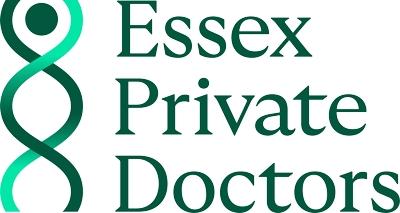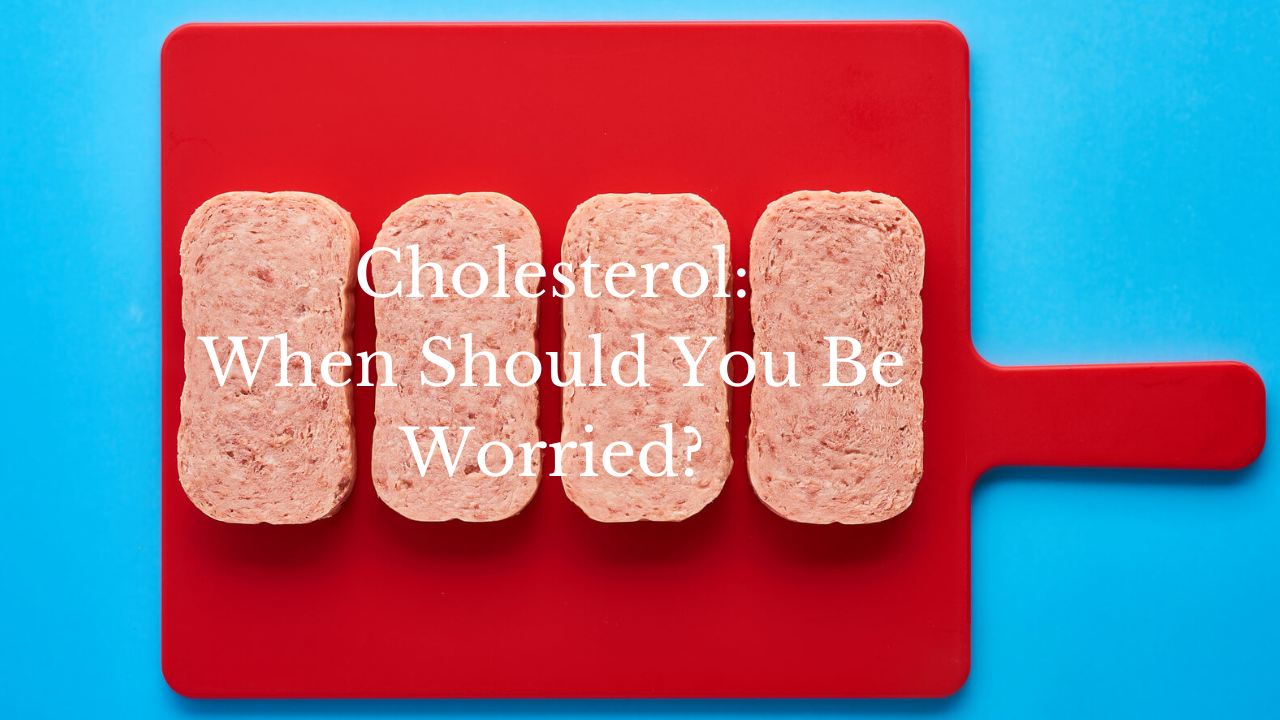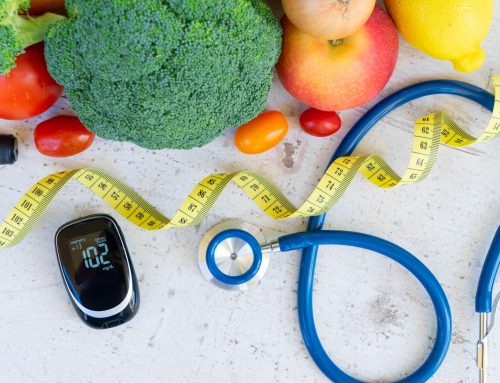Are you concerned (or confused) about cholesterol? Have you previously been told you have ‘high’ cholesterol, but aren’t really sure what that means for you? With the growing prevalence of heart disease and related conditions, it’s crucial to understand cholesterol and its impact on your wellbeing.
While cholesterol plays a vital role in your body, having too much of the wrong type can lead to serious health issues, including heart attacks and strokes. We’re here to guide you through everything you need to know about cholesterol, why it’s important, and how to manage it.
What Is Cholesterol?
Cholesterol is a waxy, fat-like substance that is essential for keeping your body and cells healthy. Your liver produces most of the cholesterol you need, but you also absorb it from certain foods. Despite its bad press, cholesterol is vital for:
- Cell membrane structure: Cholesterol helps form the membranes that protect your cells.
- Bile production: It plays a key role in the production of bile, which aids in the digestion of fats.
- Hormone production: Cholesterol is a building block for hormones like oestrogen, testosterone, and cortisol.
- Vitamin D synthesis: Sunlight enables your body to convert cholesterol into vitamin D, essential for bone health and a strong immune system.
How Does Cholesterol Travel Around the Body?
Because cholesterol doesn’t dissolve in blood, it has to be transported through your bloodstream by particles known as ‘lipoproteins’. There are two main types of lipoproteins that affect your health:
- Low-Density Lipoproteins (LDL): Often labelled as ‘bad’ cholesterol, LDL delivers cholesterol to your cells. If too much LDL is present, it can build up in your arteries, leading to blockages.
- High-Density Lipoproteins (HDL): Known as ‘good’ cholesterol, HDL helps remove excess cholesterol from your bloodstream, transporting it back to the liver where it can be broken down and disposed of. High levels of HDL help protect against heart disease.
Why Is Too Much LDL Cholesterol Harmful?
When your body has an excess of LDL cholesterol, it can lead to the development of atherosclerosis, where fatty deposits build up inside your arteries. This process causes your blood vessels to narrow and harden, increasing the risk of heart disease, high blood pressure, heart attacks, and strokes.
The accumulation of LDL cholesterol can form plaques on the inner walls of your arteries, restricting blood flow. If these plaques rupture, they can cause blood clots, which may block the blood supply to your heart (causing a heart attack) or brain (leading to a stroke).
HDL Cholesterol: Aka ‘Good Cholesterol’
On the flip side, HDL cholesterol acts as a protective mechanism in your body. It collects excess cholesterol and transports it back to the liver for breakdown and elimination. High levels of HDL cholesterol are linked to a lower risk of heart disease because it helps to remove LDL cholesterol from your arteries.
Understanding Your Cholesterol Levels
When you have a cholesterol test, also known as a lipid profile, your results will show your total cholesterol level, but they also break down into:
- Total Cholesterol: This includes both LDL and HDL.
- LDL Cholesterol: The ‘bad’ cholesterol that can lead to blocked arteries.
- HDL Cholesterol: The ‘good’ cholesterol that helps clear excess cholesterol from your bloodstream.
Maintaining a healthy balance of LDL and HDL is crucial. Your doctor will often look at the ratio of LDL to HDL to assess your heart disease risk. For example, even if your total cholesterol is high, a higher proportion of HDL may reduce the associated risks.
Assessing Your Risk: The Q-Risk Score
To determine whether your cholesterol levels might contribute to heart disease or stroke, doctors use a tool known as the Q-Risk3 Score. This score estimates your chances of having a heart attack or stroke within the next 10 years. It takes into account your cholesterol levels along with:
- Age
- Blood pressure
- Weight and height
- Ethnicity
- Family history of heart disease
- Smoking habits
- Other medical conditions, such as diabetes or migraines
A Q-Risk3 score above 10% indicates higher risk, and your doctor may suggest lifestyle changes or medication, such as statins, to lower your cholesterol and reduce the risk of cardiovascular disease.
Factors That Affect Cholesterol Levels
Several factors influence your cholesterol levels, including:
Diet: Consuming foods high in saturated and trans fats (such as processed meats, fried foods, pastries, and cakes) can raise your LDL cholesterol. In contrast, foods high in unsaturated fats (like olive oil, nuts, seeds, and oily fish) can help increase HDL levels.
Exercise: Regular physical activity, particularly cardiovascular exercise, can help raise HDL cholesterol while aiding weight loss, which in turn reduces LDL levels. The recommendation is at least 150 minutes of moderate-intensity exercise per week, along with strength training twice a week.
Age and Gender: Cholesterol levels naturally increase with age. Women tend to have lower LDL cholesterol than men before menopause, but after menopause, LDL levels typically rise while HDL may decrease.
Genetics: Some people have familial hypercholesterolaemia, a genetic condition that causes very high cholesterol levels regardless of diet or exercise.
Food Choices and Cholesterol
Making some small changes to your diet can have a significant impact on your cholesterol levels. Here are some tips for improving your cholesterol naturally:
Increase soluble fibre: Foods such as oats, barley, and beans contain soluble fibre, which can help lower LDL cholesterol by reducing its absorption into your bloodstream.
Eat more plant sterols and stanols: Found in fortified foods like certain margarine and yoghurt drinks, these compounds block cholesterol absorption in the intestines, reducing its entry into your bloodstream.
Focus on healthy fats: Incorporate unsaturated fats from sources like avocados, nuts, seeds, olive oil, and oily fish such as salmon and mackerel. Try to eat at least two servings of fish per week, including one portion of oily fish.
Reduce saturated fats: Limit foods high in saturated fats, such as fatty cuts of meat, full-fat dairy products, fried foods, and processed snacks, as these can raise your LDL cholesterol.
When is Medication Necessary for raised Cholesterol?
While lifestyle changes can help many people, some may require medication to manage their cholesterol levels, particularly if they have a high Q-Risk3 score or familial hypercholesterolaemia. The most common medications for lowering LDL cholesterol are ‘Statins’, which work by reducing cholesterol production in the liver. Other medications include ‘Ezetimibe’, which limits cholesterol absorption, and newer injectable treatments like ‘PCSK9 inhibitors’.
Take Control of Your Cholesterol
Maintaining healthy cholesterol levels is essential for preventing heart disease and strokes. Regular check-ups with your doctor, dietary adjustments, exercise, and medications when necessary, can all help keep your cholesterol levels in check. At Essex Private Doctors, we recommend regular cholesterol testing, especially if you’re over 40, have a family history of heart disease, or possess other risk factors.
By staying on top of your cholesterol, you can take proactive steps towards a healthier and longer life.
How we can help
Need advice about your cholesterol levels or medication? Book an appointment for a consultation with one of our expert GPs today.
Looking for a thorough health MOT? Book at Well Man or Well Woman health check today.






